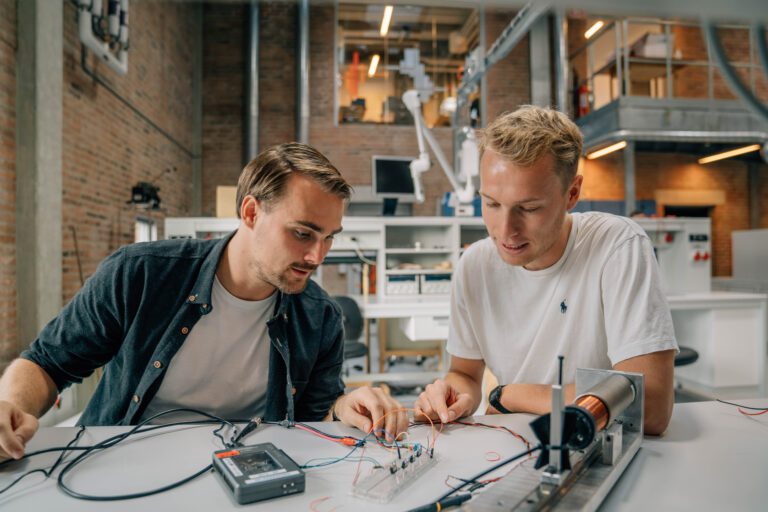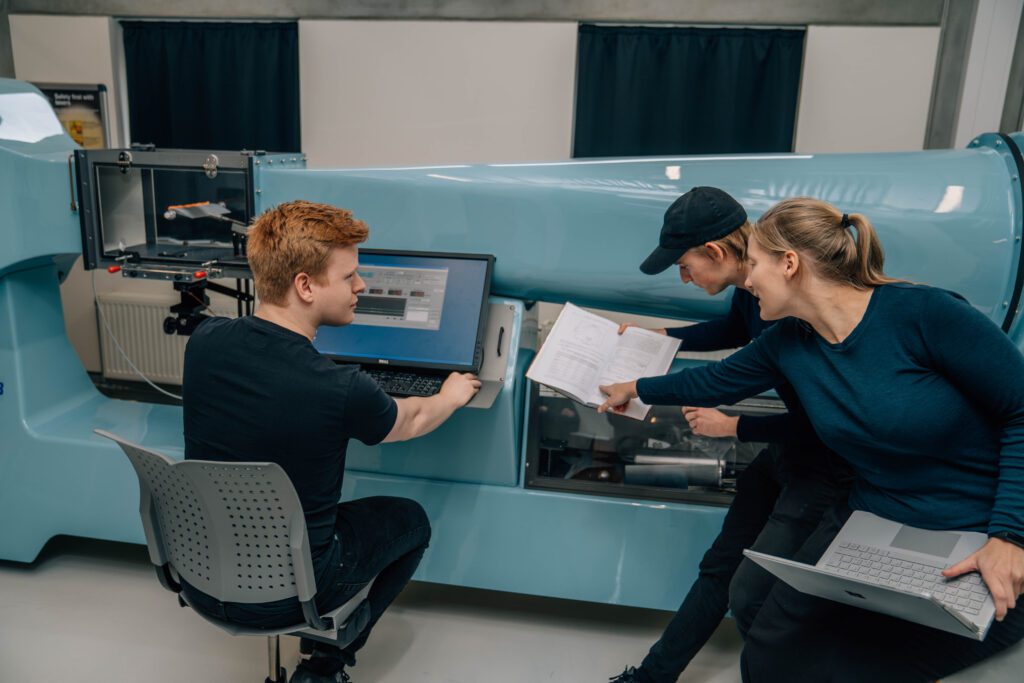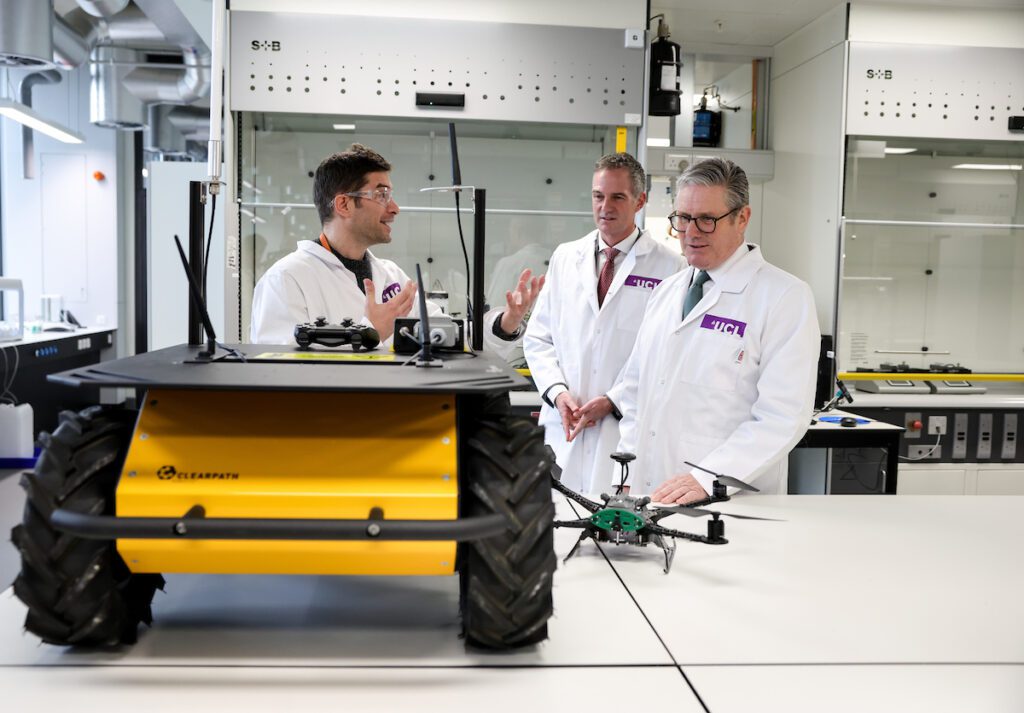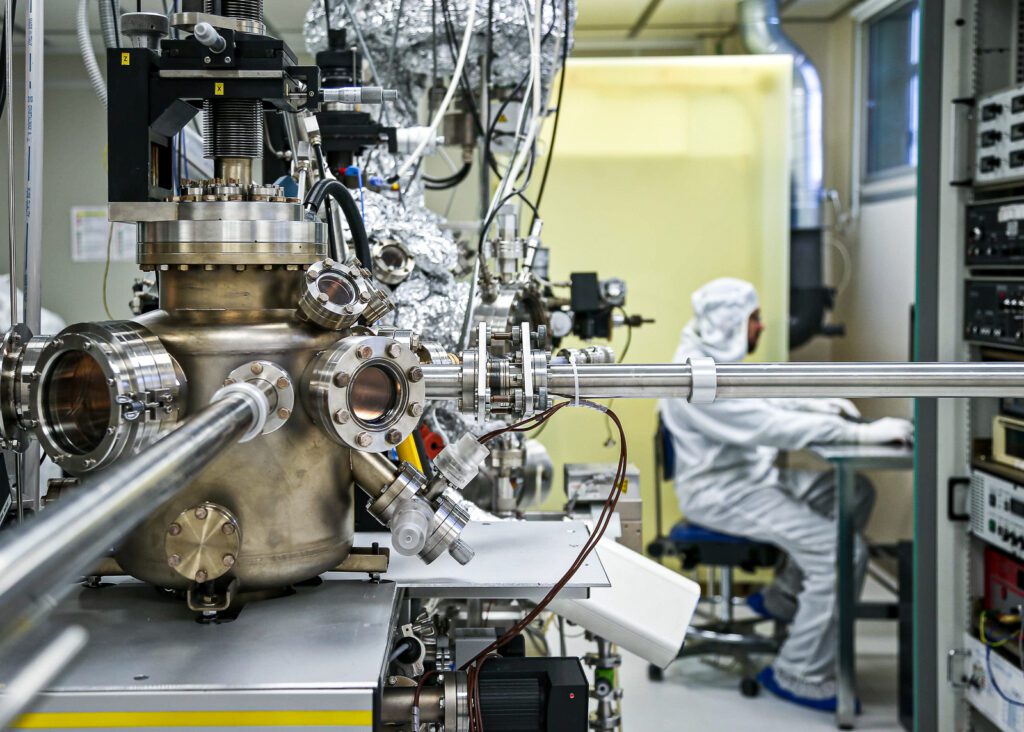
Energy is the pulse that drives progress, shaping the way you live, work, and connect with the world. From powering cities to fuelling global industries, it’s at the heart of every innovation that transforms society. Today, the conversation isn’t just about generating more energy, but about doing it smarter, cleaner, and more sustainably.
Breakthroughs in renewable technologies are turning sunlight into round-the-clock power, offshore wind into national grids, and bioenergy into viable fuel alternatives. These advances are driven by skilled professionals who can navigate both technical challenges and global sustainability goals. Around the world, forward-thinking universities are preparing graduates to step into this role, combining cutting-edge research with hands-on experience in green energy solutions. You won’t just be studying theories; you’ll be learning how to design solar farms, optimise smart grids, and develop policies that balance economic growth with environmental responsibility.
If that’s something you’re interested in, consider these four universities:

AAU Energy is dedicated to research, innovation, and education in the broad field of energy, with a focus on renewable energy sources, energy efficiency, energy conversion, and energy control. Source: Aalborg University
Aalborg University
A building that can store heat like a giant thermal battery sounds like science fiction, but at Aalborg University, it is science in action. Researchers there have developed a new method to adjust and Store Heat in Buildings, cutting energy costs by up to 2 million Danish kroner (US$313,309 at the time of writing) annually. Other teams are working on Power Sentinel, a non-invasive cybersecurity tool designed to protect power systems from modern threats, and ultra-fast chargers for electric trucks and other large vehicles. On top of this, a student-driven project, working alongside researchers and industry experts, has developed a groundbreaking “hybrid drone” that operates both in the air and underwater, allowing for surveillance of subsea energy infrastructure and offshore wind turbines.
These breakthroughs offer just a glimpse into the innovations emerging from the Department of Energy at Aalborg University, which is home to some of the world’s top researchers. Known for its expertise in energy systems, the department is driving progress in energy production, transfer, distribution, and sustainability. Aalborg University has risen steadily in global rankings and is now among the top 2% of the world’s 17,000 universities. On the Times Higher Education Impact ranking list, it holds the ninth spot out of 2,526 institutions worldwide.
At AAU Energy, you will learn from professors who are active researchers and with some of the leading figures in the global energy industry. This means lessons are grounded in the latest developments, and theory is paired with hands-on experience in state-of-the-art laboratories in Aalborg and Esbjerg, including Battery Systems Test Laboratory, Electrical Engineering Laboratory, Renewable Energy Control Laboratory. The problem-based learning approach puts you in very practically relevant projects with industry, with two-thirds of the department’s annual turnover in terms of research projects conducted in collaboration with external companies.
If you are ready to join the green transition, AAU Energy offers study programmes such as Energy Engineering, Sustainable Energy Engineering, and Advanced Power Electronics. Each programme covers a wide range of technologies, from thermal and electrical systems to mechatronic control engineering, and has specialisations which you can choose. The best part? All programmes are problem-based, with most projects placing you in real situations where you investigate and improve actual systems. This approach trains you to become a responsible problem solver and a leader, the kind equipped to help build a better tomorrow and sought after by industry and society.
Learn more about the energy programmes at AAU Energy.

A vast majority of Bartlett’s energy students are employed or pursuing further studies within 15 months of graduation. Source: University College London/Facebook
University College London
The Bartlett Faculty of the Built Environment at University College London ranks #1 in the world for architecture and built environment studies, according to QS, and it’s easy to see why. As the UK’s largest research community in the field, faculty and students work day in and day out to build a better future, supported by international partnerships and the latest technology.
The sheer range of multidisciplinary research projects at Bartlett is one to behold. In the face of rising natural hazards resulting from factors such as the climate crisis, researchers are seeking to implement more equitable disaster risk management interventions to meet the needs of more vulnerable populations. Another project, ReHousIn, aims to better understand the housing crisis across different European regions after the implementation of the EU’s green transition.
One of Bartlett’s areas of expertise lies in both contributing and shaping the energy transition, producing future leaders of the cause in three MSc programmes: Smart Energy and the Built Environment, Economics and Policy of Energy and the Environment, and Energy Systems and Data Analytics. Each programme spans one year of full-time study, and the opportunity to make an impact heightens with access to London’s global industries and the heart of the UK government.
At Bartlett, 96.7% of energy graduates are employed or pursuing further studies within 15 months of graduation. It’s the result of an education that’s embedded in the latest developments in research and industry, ensuring your skills will prepare you to tackle the challenges of today.
Check out UCL’s energy master’s degrees here.

Multidisciplinary projects at Polimi’s Department of Energy cover the entire energy value chain. Source: Politecnico di Milano/Facebook
Politecnico di Milano
Improving food security on a multifunctional farm despite the absence of a reliable electricity grid. Installing photovoltaic systems on campus roofs as a renewable energy source in a project aimed at making the entire city green. Optimising energy efficiency of server rooms in advanced tertiary buildings across Europe to reduce electricity consumption.
At Politecnico di Milano’s (Polimi) Department of Energy, researchers are seeking evidence-based solutions to the sector’s most pressing global challenges. With the goal of developing innovative and sustainable practices for the energy transition, its turnover reached 24 million euros (US$27.9 million) in 2023 alone. It’s internationally renowned, with experts often collaborating with leading industry companies, key public institutions, and global organisations.
From faculty to research fellows, over 500 people in the Department of Energy contribute to interdisciplinary projects across 41 laboratories that span more than 8,300 square metres. Split into 18 groups, they’re tackling energy transition and security throughout five research sections, examining various macro-themes within the context of social and environmental sustainability, risk analysis, socio-economic impacts, and more.
Polimi offers cutting-edge master’s degrees in energy engineering, electrical engineering, and nuclear engineering. These programmes are designed to provide you with a multidisciplinary educational experience — one that’s rich with practical opportunities, allowing you to build a specialised skill set and a wide network to enter the professional world with confidence.
Check out Polimi’s programmes at the Department of Energy here.

Vilnius Tech was founded in 1956 in Lithuania and is a leading university for technological sciences worldwide. Source: Vilnius Tech/Facebook
Vilnius Gediminas Technical University
Faculty and students at Vilnius Gediminas Technical University are neck-deep in research projects. Recently, students have been developing a digital twin for the Sustainability Hub to facilitate real-time assessments of thermal comfort and air quality. Another team collaborated with Aalto University in Finland to design an autonomous mine-detection drone for a global aviation and defence company, Saab, to safely identify plastic-made landmines.
This is what every day looks like at Vilnius Tech — a leading university in the field of technological sciences, founded in 1956 in Lithuania. With connections to 300 business partners and 410 university partners across the world, this is where creative, market-oriented specialists are born. As society continues to change, Vilnius Tech rapidly evolves.
Multidisciplinary projects are conducted across four research centres, 14 institutes, and 22 laboratories, with a strong focus on the European Research Area (ERA). Whether you’re looking for solutions in fields like health, education, or transportation, faculty members are there to guide you in small classes that take an applied, real-world approach to learning.
The Master’s Degree Programme in Building Energy Engineering is designed to produce highly trained specialists who find innovative solutions to one of the most polluting elements in climate change — energy systems installed in buildings. In two years, you’ll gain the skills to critically analyse, simulate, and integrate these energy systems and their processes, utilising cutting-edge technologies through research and analysis.
Check out the Master’s Degree Programme in Building Energy Engineering here.








